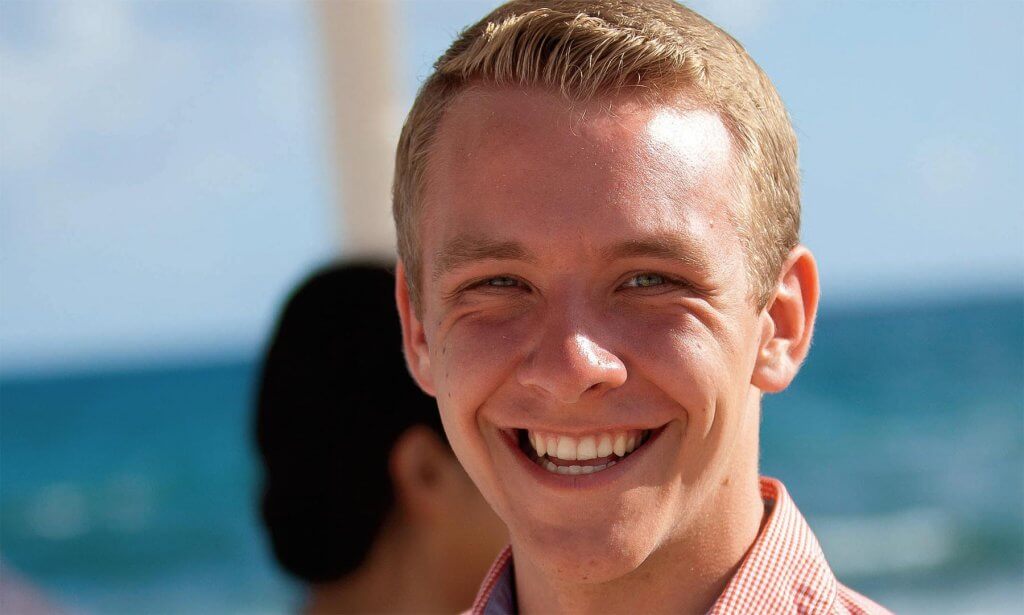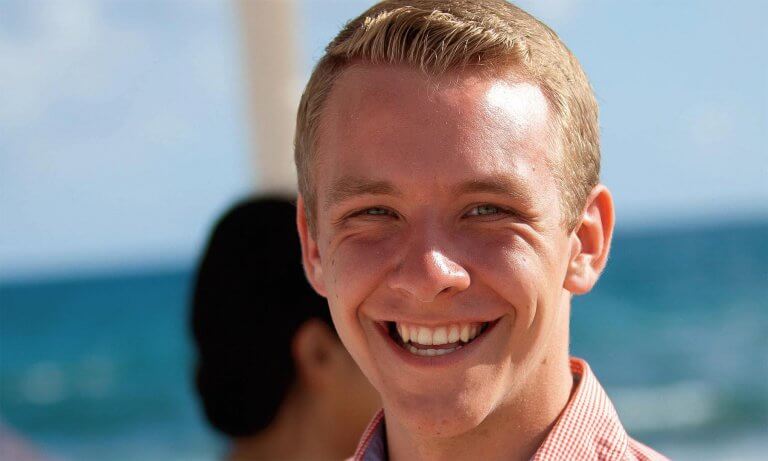Weeks after 19-year-old Micah Hackett was diagnosed with terminal cancer, his family faced a devastating choice.
Did they want doctors to treat the cancer that was killing Micah?
Or did they want doctors to treat the symptoms that included violent seizures, paralysis, confusion and headaches?
They couldn’t have both.
What they wanted was the best available care in 2019.
But the best hospital care in Windsor during the dying teenager’s seven-month cancer battle was split between two buildings four kilometres apart, and Micah was incapable of travelling.
“It’s just frustration,” says his dad Brent Hackett.
“Would he have lived longer if everything was in one hospital? Maybe a few more days, maybe not – cancer’s stupid,” he says. “But, you are under stress when you know that the services that could be given to your family member are at another hospital.”
An aggressive cancer in Micah’s spinal cord and cerebral meninges caused seizures and intracranial pressure that required a shunt. That meant he depended on critical services at Windsor Regional Hospital’s two sites: the neurology department at its Ouellette campus downtown and the oncology department at its Met campus in South Walkerville.
For weeks, his care included being transported between the two facilities, depending on which medical need was a priority at the time. Those transports alone had family members “always on edge,” worrying about what could go wrong as Micah and his medications were passed from hospital to hospital, department to department.
Then, as Micah’s condition worsened and he relied on more medications and equipment to keep him alive, it became clear that he was too weak to be transferred between hospital campuses.
His family decided on Met, because the cancer was the root of Micah’s problems, but that meant he could not have magnetic resonance imaging (MRI) done, which was the best way to determine how that cancer was growing. Magnets could impact the shunt that was decreasing the pressure on Micah’s brain. After an MRI, the shunt would need to be reprogrammed, a service only available at Ouellette.
“We had no idea what was going on inside of him (after that),” says Micah’s older brother Lucas. “You needed an MRI to treat the symptoms.
“We had to fight the cancer, but it was aggressive.”
Micah died Wednesday, July 17, 2019. Every Wednesday since, Lucas has gone to sit by his brother’s grave.
“He was the person I laughed with and he was the person I talked to. Now I don’t have that,” says Lucas, 26. “I loved him with my whole heart – more than I can say.
” Home-schooled, the four Hackett kids grew up as siblings, classmates and best friends. Mornings were for school work, afternoons for Lego, imaginary play and the trampoline. Micah was the bravest. “He’d do crazy flips that would freak me out,” says Lucas. The brothers shared a bunk bed as kids and nights were spent talking and giggling.
Back then, Micah talked about being a travelling preacher, but as he grew older, he decided he wanted to stay close to home and be a pastor in his own community. He and Lucas would drive to Bible conferences around Southwestern Ontario and Michigan. He loved his faith and became increasingly focused on studying the Bible and biblical languages, spending his free time writing books about the Bible. He launched two websites and since his death, his family has found two books he wrote.
After Micah’s fourth trip to the hospital last winter, Lucas took a leave from work so he could be with his brother. “I didn’t want to be anywhere else – I wouldn’t want to be at home or at work, knowing he was sitting there in a bed.”
—–
In November 2018, Micah and Lucas went to Mexico for a friend’s wedding. They had a great time, says Lucas. Then, after they returned to Windsor, Micah started feeling tired and sick.
It started with fatigue, a nagging headache and Micah generally feeling under the weather. After a couple of weeks, it started to seem like the flu that wouldn’t end — nausea, vomiting, headaches — it just kept getting worse. He worked at Forest Glade Fireplaces, but he was missing shifts. He felt so sick.
The first seizure was Dec. 21, 2018 – the day after he turned 19.
Micah’s parents followed the ambulance to Windsor Regional’s Ouellette campus, and arrived to find doctors had already done a lumbar puncture on Micah to determine if he had meningitis.
Before February, the teenager had had four major seizures – one of them seven minutes long. Doctors in the neurology department at the Ouellette campus had done three lumbar punctures, and surgery to place a shunt in his brain. They tested for cancer, but it wasn’t detected at that point.
Between hospital stays and ambulance trips, his family tried to keep things as normal as possible. They went out for dinner Feb. 7, an event documented in a journal the family started to keep track of Micah’s symptoms, treatments and medicines.
Micah loved Swiss Chalet. He ordered double fries. He couldn’t finish them.
“That’s the last time he ever went out for dinner. The whole family was there,” says Brent. “I was just thinking about that yesterday.”
After another seizure and long period of confusion, doctors sent Micah to London’s University Hospital for more tests. It was there that an MRI found a blood clot and a rare form of cancer on Micah’s spinal cord.
Cancer meant Micah would need an oncology team at the Met campus, but the ongoing seizures and other symptoms meant he still relied on the neurology department at Ouellette.
“It was really a distressing time because you didn’t know where you needed to be,” says Brent. “They didn’t know if he should be a neurological patient or a cancer patient.” While at Ouellette, Micah was under the care of the neurology department and also a “hospitalist,” or internal medicine doctor.
The ambulance rides and other transfers between hospitals increased.
One week – between March 27 and April 3, 2019 – Micah was transported between hospitals five times. “Each time meant a new chart, a new assessment, a new interpretation,” says Brent Hackett. “The swabs, all the testing all over again.”
One transfer took so long, Micah didn’t receive his seizure medication at the proper time. Two days later his dad arrived at the hospital at 7:30 a.m. to find Micah in bed, with blood and drool on his pillowcase and a nurse trying to wake him.
That day, paramedics transferred Micah back to Met, where he was assessed and admitted “like a brand-new patient again,” says Brent. The doctor did an assessment and informed Brent that Micah appeared to have meningitis, according to a detailed log kept by the family. After some back and forth, Brent explained his son’s diagnosis and the emergency room doctor looked Micah up in files, where he found information about the rare cancer.
Still, due to that day’s seizure, Micah was transferred out of the hospital with an oncology department and back to the intensive care at Ouellette for neurology to keep an eye on him.
“We were always on edge: ‘Is he going to have a seizure because of being transported?’” says Micah’s sister Nicole. She recalls the steps required to transfer Micah’s file to the other hospital, the paperwork and re-admission. Each time, she says, hospital staff would re-enter all the information about the medications he needed. “There is a lot of room for errors.”
It was April when doctors said the transfers were becoming too much for Micah. He was hooked up to a breathing ventilator machine, with a tube down his throat to his trachea.
They told the Hacketts he should remain on one site and that should be where oncology specialists could treat the cancer. Problem was he needed MRIs to monitor the cancer growth and see what was going on, but magnets can change the pressure setting in shunts – and Micah’s shunt was critical to easing the otherwise unbearable pressure on his brain. Normally, after an MRI, his shunt would need to be reprogrammed by a neurosurgeon, but that was not available to him at Met, Brent says.
“So from then on, they couldn’t see where the cancer was or what was happening in his head. They could not see in detail what they needed to see. I asked many times, ‘Can’t we do an MRI?,’ and they said ‘We can’t. He has a programmable shunt and he’s too weak to transfer over to Ouellette to get it done.’”
He recalls doctors saying things would have been easier if neurology and cancer services were in the same facility. “With the current set-up you have to make a choice,” says Brent.
“That’s the problem. Everything is split between two locations.”
Micah’s doctors did not respond to requests to participate in this article, but hospital officials have confirmed that Micah would not have been able to have his shunt reprogrammed while at Met.
Not that doctors didn’t try. While in cancer care, Micah suffered at least one major seizure that put him out of commission for three days and led to paralysis. At one point, an on-call oncologist ordered an emergency MRI, but it could not be done as shunt reprogramming can only be done at Met.
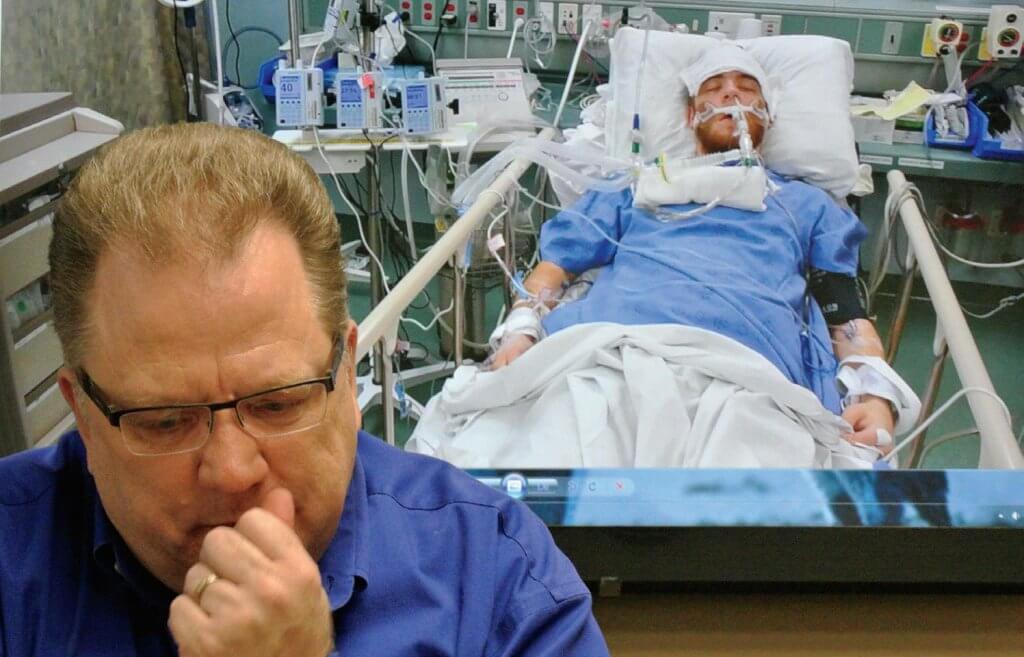
“We have half a hospital at the Ouellette campus and half a hospital at the Met campus,” says Dr. Wassim Saad, Windsor Regional chief of staff. “They provide different services. They are one hospital apart. Services are spread out. They are fragmented.” Many of the problems “will disappear under one roof” if the new acutecare hospital is built, he says.
In May, five months after his first seizure and two months after his cancer diagnosis, Micah’s medical team said the teen would benefit from palliative care and he went home.
While he was home, members of the family’s church would often stop by to visit and pray, while prayers came in from around the world to a Facebook group Nicole set up. The family still had hope.
“When you have a history of faith, you’re looking for miracles,” says Brent.
At the end of May, a film crew came to videotape Micah talking about his faith and his life. In the six-minute video he appears upbeat and accepting of what is happening and calls his death “a shortcut to heaven.”
“He seems so together during the video. But after they were done he fell asleep and woke up and said, ‘When are they coming to videotape me?’” recalls Brent. “Then he asked, ‘Oh, did I do good?’”
Micah returned to Met hospital June 12, and died five weeks later.
—
Lest anyone think that the family blames the medical team, a month after Micah died, his dad emailed hospital CEO David Musyj praising hospital staff, especially nurses for the “A+” care. Not only did they do everything they could to help Micah, they listened to the family with compassion and cried with family members when he passed away.
But the purpose of the email, says Brent, was to provide the hospital with “actual comments from patients in support of the new mega-hospital.”
Before his son was sick, Brent knew about Windsor-Essex’s plans for a new acute-care hospital that would put all services under one roof in state-of-the-art surroundings, but didn’t give the issue much thought.
“Before, all I cared about was as long as an ambulance can get to the hospital, it doesn’t matter where it is,” he says. “You never care about it until you need it.”
—
Micah’s older sister can still hear him laugh, in that distinct way he had. It was contagious.
The sadness comes and goes, for Nicole, 30, who has three kids ages eight, six and two. “Having the kids around keeps my mind off it, but then you go to bed at night and close your eyes and all you see are the IVs and all the machines around.
“It was the most traumatic seven months of our lives…. You’re always hoping for that miracle.”
Micah was a spiritual person who “cared deeply about everyone who he came in contact with,” always seeking knowledge, which he loved to pass on to others, says Nicole.
“He was definitely an unusual teenager – selfless and willing to go help anybody at the drop of a hat. He had a listening ear. He’d cut grass and do yard work for seniors from the church.”
And he adored his nieces and nephew. Even when he was sick, his face would light up when he saw them.
While he was in the hospital, the family would pray for Micah to be healed every night. “After he passed away, I said ‘God answered our prayer and healed Micah, but he healed him in heaven instead of here on earth,’” says Nicole. “And they were happy. To them he’s healed, he’s walking again in heaven.
“I wish I had their simplicity.”
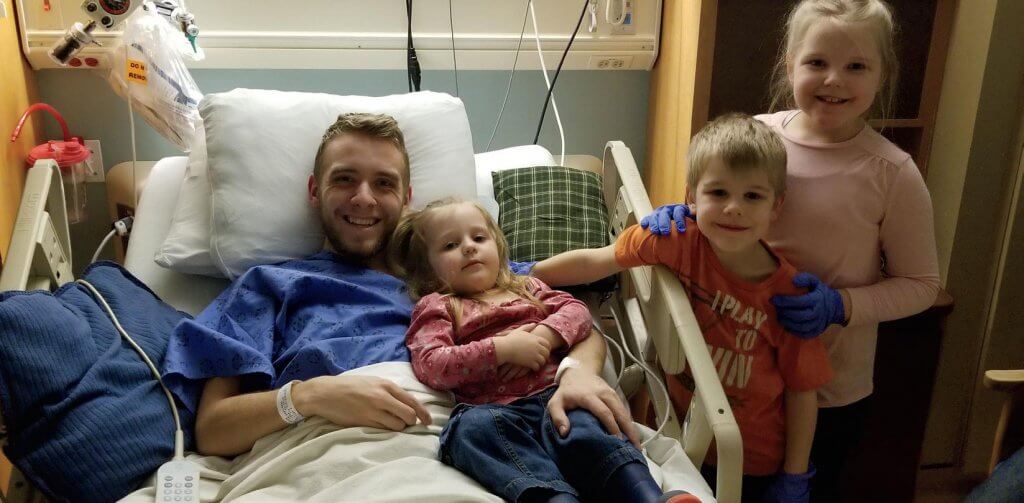
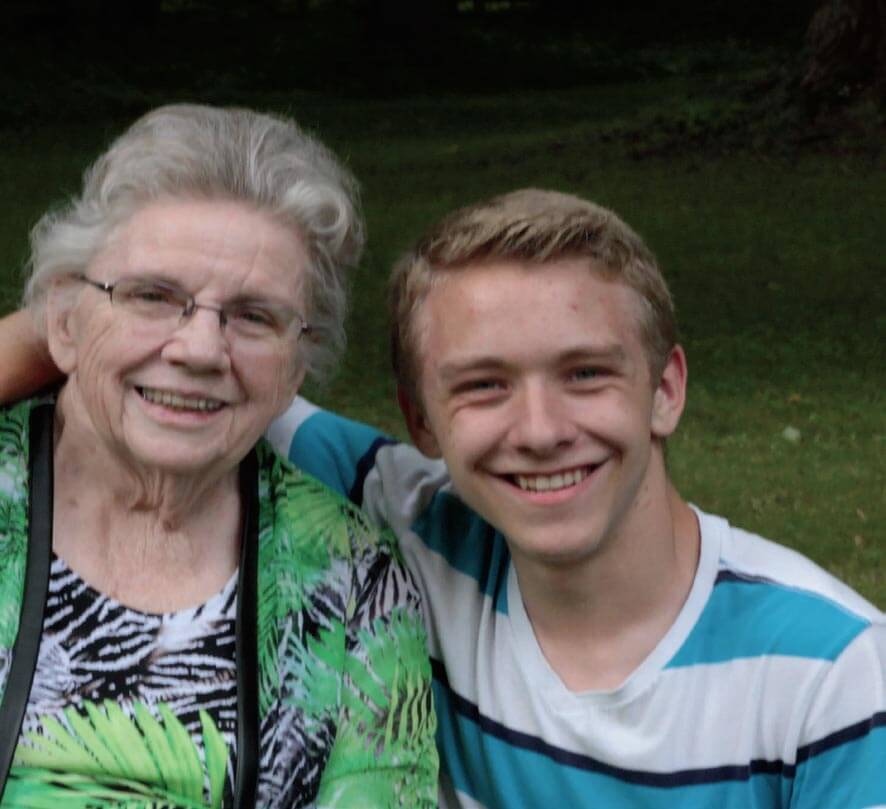
Excerpt from a Brent Hackett Email to WRH CEO David Musyj
It’s been a long, tough haul. But the support from everyone in the hospital was great. When we were on 4W at MET, we would still get messages from the 8th floor at Ouellette asking how my son was doing. A lot of the nurses followed my son’s Facebook page to keep up to date on how things went. It was a real family atmosphere. Even the porters who wheeled my son down to get his radiation and other tests were great (Brad loved taking my son, as my son’s memory wasn’t too good due to his seizures, so Brad got to tell the same jokes all over again). The cleaners too would poke their heads into the room and ask how things were each day. And when we had to come back to the hospital, they would stop and ask what was wrong when they saw us again. I might as well add that the kitchen staff was great too. When we were at Ouellette, they got to know us by our voices, and how my son liked his tea or coffee. Then when we moved to Met, they connected who we were by my son’s tea and coffee choices.
